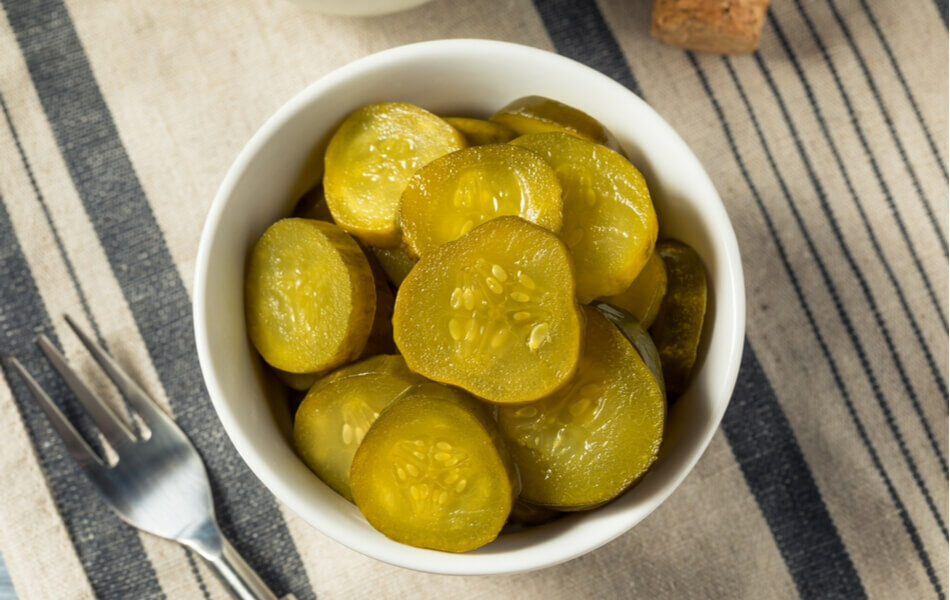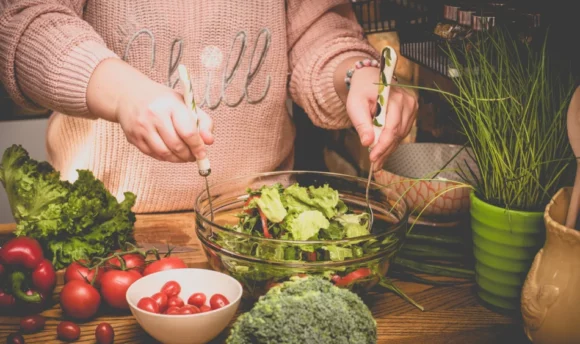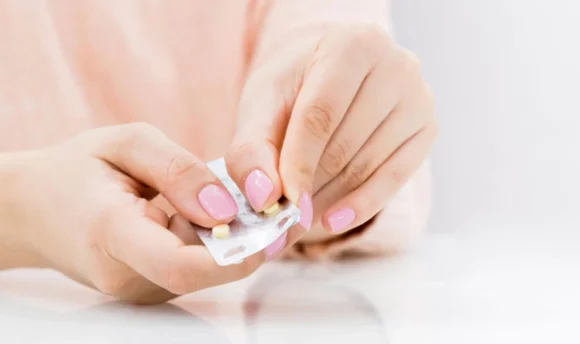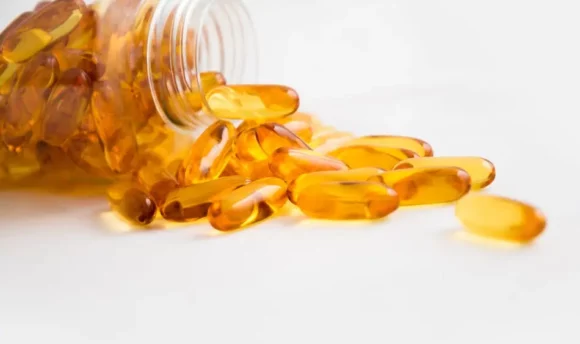Are Pickles Good for Weight Loss? 4 Benefits Included
Are pickles good for weight loss? Find out what they are, whether they are healthy and good for the stomach, and their benefits to the body.

Every new year, people make resolutions to live better, make more money, and lose weight to move up the Maslow’s hierarchy of needs and achieve self-actualization. Individuals desire to lose body fat to avoid health problems, including high blood pressure.
48% of people included weight loss as a new year’s resolution for 2021. The findings reflect the resolve to achieve a healthy weight by exercising or following a very restricted diet.
Therefore, it is no wonder that someone would be curious if a pickle diet is good for weight loss. This article has all the answers to satisfy your curiosity.
Are Pickles Good for Weight Loss?
Pickles are good for weight loss because they are low-calorie snacks. Eating pickles alone doesn’t help you lose weight, but you can include them in a calorie-controlled diet. For instance, dill pickles have only 6 calories per 40g serving, so a cup of them doesn’t exceed your daily calorie allowance.
The vinegar mixture in pickle brine has acetic acid, which may help individuals shed weight. A good example is that rats fed acetic acid are less likely to become obese compared to those that aren’t.
Also, the acetate in apple cider vinegar can help suppress appetite by controlling the centers in your brain responsible for appetite control. You consume vinegar by eating weight loss pickles; therefore, you feel full longer and don’t consume many calories throughout the day, helping you shed pounds.
You can eat chopped pickles as a snack or add them to your weight loss diet. Eat them with a leafy green salad or pasta salad to help you lose weight.
Consume low-sodium pickled veggies, as a high sodium content results in your body retaining water. Water retention makes it harder to track your weight loss progress because even as you lose body fat, your body holds on to water.
If you struggle with weight loss, use pickle slices instead of high-calorie toppings to flavor your turkey or chicken breast sandwiches. If you want to switch from plain cucumber pickles, eat other low-sodium pickles like cauliflower or beans. They give you enough calories while aiding fat loss.
What Are Pickles?
The star ingredient in pickles is cucumbers. However, you can soak various vegetables or even fruits in a brine solution consisting of spices, vinegar, seasonings, and salt.
After water, vinegar is a prominent pickle juice ingredient. If you’re not a fan of unsweetened pickles, you can add sugar to offset the sour taste and make sweet pickles.
Other pickle types include:
#1 Dill pickles: These are sour pickles made by soaking cucumbers in brine with garlic and dill weed.
#2 Mixed pickles: A combination of cucumbers and other vegetables like cauliflower or asparagus.
#3 Sweetened pickles: Cucumbers soaked in brine with sugar and spices, giving them a sweet and sour taste.
Thank you for your answer
Health Reporter Surveys
Pickle nutrition
Pickles vary in their nutrition content depending on their type. According to FoodData Central, a sweet cucumber spear can give you 18 calories, 91mg sodium, less than 1g of fat, less than 1g of protein, and slightly over 4g of carbs.
A sour cucumber spear has slightly over 3 calories, 363mg sodium, and less than 1g of carbohydrates, fat, and protein. One dill pickle will give you 4 calories, 283mg sodium, almost 1g of carbs, and less than 1g of protein and fat.
As you can see, all the pickle types are typically high in sodium. You have to read the nutrition information of every pickle jar you pick off the store shelf, including its sodium content.
It is important to know the nutrition information of every pickle brand, as it helps you monitor and control the calorie amounts you consume from each pickle serving. Calorie control can manage your weight better. Pickles are not suitable for fasting as they contain calories, therefore, will break your fast.
Are Pickles Healthy?
Generally, pickles are healthy because they have vitamins, and they don’t have a lot of protein or fat. They are also a great source of probiotics, which are extremely important for a healthy gut.
For instance, eating a dill pickle gives you 1% of your daily vitamin A requirement, 20% of the daily vitamin K recommendation, 6% of your daily potassium needs, 3–4% of your daily vitamin C requirement, and 6% of the calcium amount your body needs daily.
Eat regular pickles instead of dill pickle-flavored chips, as they are much healthier and are low in calories. Fermented pickles are rich in probiotics, which are good bacteria that promote gut health.
A pickle diet helps keep your body healthy by fighting diseases; your body turns the beta carotene in cucumbers into vitamin A, helping fight cancer, respiratory illnesses, and heart disease.
Benefits of Pickles
Pickles have various benefits to the body, including soothing muscle cramps, boosting the immune system, providing antioxidants, and improving gut health, as explained below:
#1 Boosts the immune system
Pickles are rich in vitamins and antioxidants, which help fight off diseases and infections when they attack the body. Therefore, they boost the immune system, as diseases are not constantly weakening it.
#2 High in antioxidants
Pickles have antioxidants, which help reduce free radicals that cause damage to the body and lead to diseases like cancer. Those who eat pickles obtain antioxidants naturally, helping them reduce extensive damage of free radicals to the body.
#3 May soothe muscle cramps
Drinking pickle juice may help soothe muscle cramps by triggering muscle reflexes when the juice reaches the back of the throat, stopping muscle neurons from misfiring all over the body to relieve muscle cramps.
#4 Great for gut health
Fermented pickles encourage the growth of gut-friendly bacteria, which helps in food digestion. Gut-friendly bacteria are good for gut health and overall well-being.
Are Pickles Good for Your Stomach?
Pickles may be good for your stomach because they are preserved in brine with vinegar, which some people use as a home remedy to relieve an upset stomach. However, a high intake of pickles with too much sodium may cause stomach cancer.
FAQs
Pickles are a healthy, low-calorie snack because they are rich in vitamins and antioxidants. One pickle contains only 17 calories and is a good source of probiotics, which are important for our digestive system.
Pickles have potassium. One pickle contains around 9mg of potassium, and individuals who eat dill pickles receive about 6% of their daily recommended potassium intake.
You can eat too many pickles, especially if they have a high sodium amount. They contribute to unhealthy salt consumption, risking developing complications like high blood pressure and kidney or liver disease.
Pickles have fiber, which boosts food movement through your digestive tract and helps digestion. However, there are only 0.4g of fiber in one pickle.
Eat no more than two pickles a day, as eating more can lead to an unhealthy sodium intake, exposing you to stroke, kidney, and heart disease.
A Word From Our Dietitian
Pickles are a healthy and delicious snack you can enjoy. They are high in antioxidants, vitamins A, C, and K, minerals like potassium, and fiber. These nutrients have various health benefits to the body, helping digestion and fighting diseases.
Pickles are soaked in brine with certain ingredients, including salt and vinegar. While vinegar reduces your appetite – which helps you lose weight – the high sodium content in salt may be dangerous for people with hypertension and kidney, heart, or liver problems.
Do not eat more than two pickles a day because eating more than one pickle could go way beyond a healthy daily sodium intake.
Conclusion
Pickles are good for losing weight because of their low calories. You cannot lose weight by eating pickles alone, but you can implement them in a low-calorie diet for better weight loss results. Pickles have fiber, an essential nutrient that improves gut health.

















































 Select your language:
Select your language: 








